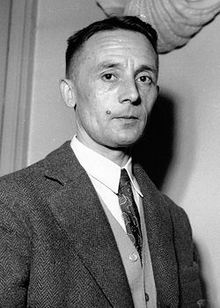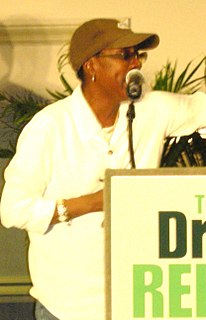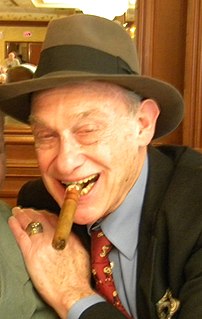A Quote by Charles Perrault
Once upon a time there was a Queen who had a son so ugly and so misshapen that it was long disputed whether he had human form. A fairy who was at his birth said, however, that he would be very amiable for all that, since he would have uncommon good sense.
Related Quotes
Anecdote: In a controversial way, Comedian and actor Bill Cosby sought to teach his son the pain of being lied to. Convinced his son had been dishonest regarding an issue, Cosby promised that if he told him the truth, he would not hit him. When his son did confess, Cosby did hit him. Seeing his son's shock and hurt, Cosby said he hoped this lesson had deepened his understanding of the anguish generated by a sense betrayal.
Blood had long since ceased to beat from one end to the other, but one could sense, from passages marked with fresher traces of wheels and hooves, that once the meaning and even the very idea of a long journey was lost, sleep had not descended over it in one fell swoop: it had continued to steal a march here and there, in a discontinuous way, and over short distances, like a laborer who feels his cart jolt on a section of Roman road that crosses his field.
Once upon a time, if you were going to get a loan from me, I would have had to look at your file, and I would have to make a decision about whether youre going to get a loan. Maybe we would meet and talk about it. There would be some level of human involvement and human interaction. Now, a lot of this is determined by an algorithm.
If it so happened that I had once written a best-seller, this was a pure accident, due to inattention and naivete, and I would take very good care never to do the same again. If I had a message for my contemporaries, I said, it was surely this: Be anything you like, be madmen, drunks, and bastards of every shape and form, but at all costs avoid one thing: success.
Said an opponent to me after my last protest was sent in, what party would you vote for, if you could? Neither. I would have a moral sentiment party. I would know the private character of my candidate, would know also whether he takes care of his own property - whether he had failed in business - if so, whether he had paid back every dollar of debt as fast as he had earned them. Yes, every candidate should be examined morally, and if it be found that he has not been true to the monitions of conscience in one direction, he cannot or will not be in another.
When Luke had descended into the River Styx, he would've had to focus on something important that would hold him to his mortal life. Otherwise he would've dissolved. I had seen Annabeth, and I had a feeling he had too. He had pictured that scene Hestia showed me—of himself in the good old days with Thalia and Annabeth, when he promised they would be a family. Hurting Annabeth in battle had shocked him into remembering that promise. It had allowed his mortal conscience to take over again, and defeat Kronos. His weak spot—his Achilles heel—had saved us all
I asked myself if I would kill my parents to save his life, a question I had been posing since I was fifteen. The answer always used to be yes. But in time, all those boys had faded away, and my parents were still there. I was now less and less willing to kill them for anyone; in fact, I worried for their health. In this case, however, I had to say yes. Yes, I would.
For if leisure and security were enjoyed by all alike, the great mass of human beings who are normally stupefied by poverty would become literate and would learn to think for themselves; and when once they had done this, they would sooner or later realise that the privileged minority had no function, and they would sweep it away. In the long run, a hierarchical society was only possible on a basis of poverty and ignorance.
What do you think it would have been like if Valentine had brought you up along with me? Would you have loved me?" Clary was very glad she had put her cup down, because if she hadn't, she would have dropped it. Sebastian was looking at her not with any shyness or the sort of natural awkwardness that might be attendant on such a bizarre question, but as if she were a curious, foreign life-form. "Well," she said. "You're my brother. I would have loved you. I would have...had to.
I discovered several never-failing signs by which one might know when a man wished to take another wife. He would suddenly 'awaken to a sense of his duties'; he would have serious misgiving as to whether the Lord would pardon his neglect in not living up to his privileges; he would become very religious, and would attend to his meetings ... which seemed just then to be very numerous, and in various other ways he would show his anxiety to live up to his religion.
I don't think I would have been a good architect. Really, I have thought about this from time to time, and I might have wound up like my father, who never did find that which he could devote his life to. He sort of drifted from job to job. He was a traveling salesman, he was a bookkeeper, he was an office manager, he was here, there, there. And however enthusiastic he was at the beginning, his job would bore him. If I hadn't had the writing, I think I might have replicated what he was doing, which would not have been good.
The problem was Mike Tyson always had trouble with bigger men. Even fighters like Bud Green, “Bonecrusher”, he had trouble with them whether he wanted to or not. He would have had great trouble with Lennox Lewis, particularly since he maximized his shortness by crouching, and he couldn't fight inside so the guy would pick him apart like Buster Douglas.
She didn’t understand why it was happening,” he said. “I had to tell her she would die. Her social worker said I had to tell her. I had to tell her she would die, so I told her she was going to heaven. She asked if I would be there, and I said that I would not, not yet. But eventually, she said, and I promised that yes, of course, very soon. And I told her that in the meantime we had great family up there that would take care of her. And she asked me when I would be there, and I told her soon. Twenty-two years ago.
































